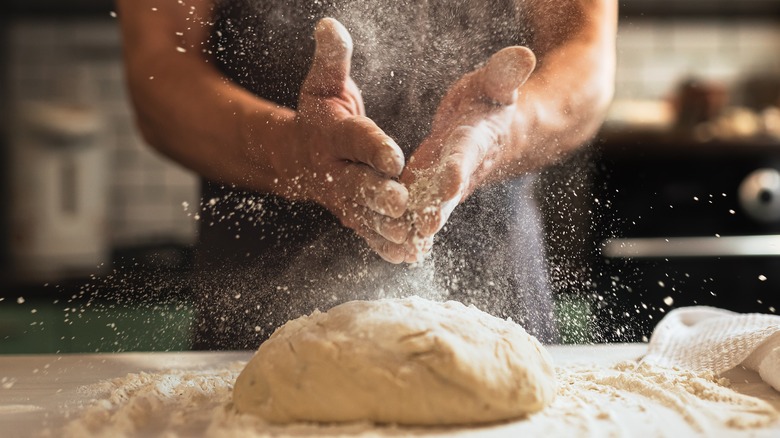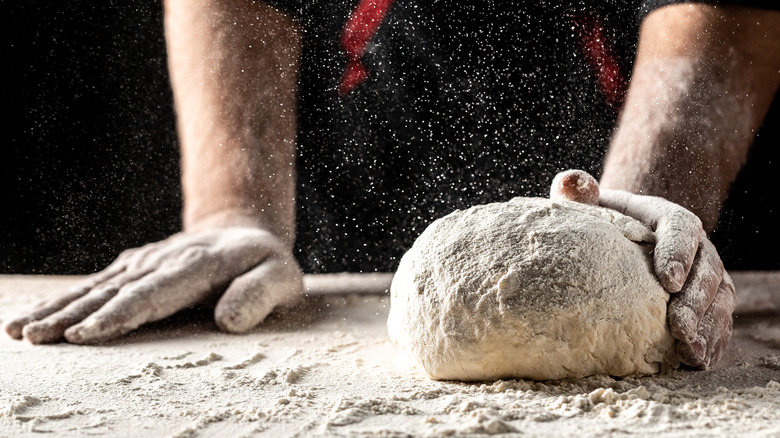How To Make Sure Your Dinner Roll Dough Rises
Whether it's your first crack at baking bread or you've got several great bakes under your belt, having your dinner rolls rise perfectly can be a challenge for bakers of any experience level. There are several variables to factor in when it comes to your dough rising properly, and if these ultra-precise conditions aren't met, it could result in bread that falls flat. This food requires a lot of effort and attention to detail from the baker, but when done correctly, nothing beats that heavenly first bite into a buttery, warm dinner roll.
Proofing bread requires allowing the yeast to ferment for a set amount of time, spurring a reaction when the sugar in your recipe eats the yeast. This creates carbon dioxide and infuses that airy, light texture into the dough so that it can start taking shape (per Bob's Red Mill). If your dinner rolls just aren't rising or looking right from the start, there are a few simple fixes you can try. Here is how you can ensure you aren't left with flat, dense blobs of bread on your dinner plate to eat.
Check the yeast, salt, and sugar you're using when proving dough
Your first move is to check the yeast you are using to see if it's still sufficient. Yeast has an expiration date, so if yours has passed the "use by" date, you can test it to see if it will still work for the bread. All you need is a bowl of lukewarm water, some yeast, and a small amount of sugar. After the ingredients dissolve, you should notice a foaming reaction that confirms the yeast can still be used (per EatingWell). Without this reaction, you'll know you have dead yeast.
If you have good yeast to start with and still run into problems with the dough rising, check on the other ingredients you're using. Sugar and salt both play a key role in how your bread will rise. Over-salting your dough will kill the yeast, and lots of sugar prolongs the proving time (via Taste of Home). Measure each ingredient out carefully, including your flour, to be sure your dinner rolls are on the right track. Unlike cooking where you can often eyeball the amount of seasoning you include in your dish, there is little room for guessing when baking. Keep in mind that it might take some experimenting to get your rolls just right.

